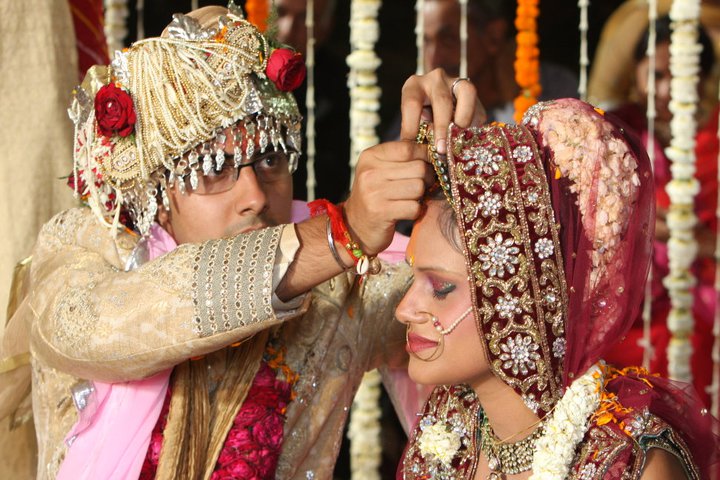Marriage Registration is absolutely mandatory for all the religions and inter-religious marriages according to Central and State Government notification. Marriage has to be registered with the Registrar of Marriages, in whose jurisdiction the marriage ceremony has taken place. A Marriage Certificate is the proof of registration of a marriage. The need for a Marriage Certificate arises in case you need to prove that you are legally married to someone, for purposes like obtaining a passport, changing your maiden name, etc.
A marriage which has already been solemnised can be registered either under the Hindu Marriage Act, 1955 or under the Special Marriage Act, 1954. The Hindu Marriage Act is applicable in cases where both husband and wife are Hindus, Buddhists, Jains or Sikhs or where they have converted into any of these religions. Where either of the husband or wife or both are not Hindus, Buddhists, Jains or Sikhs, the marriage is registered under the Special Marriage Act, 1954.
Wedding Legalities
It is necessary to keep in mind that as a rule all marriages have to be compulsorily registered.
Those who undertake a civil marriage (No formal marriage ceremony) marry under the Special Marriage Act, 1954, do not need to take any further steps because in their case registration is itself the marriage ceremony. But in the case of all religious/ceremonial marriages, and they are the majority in India, the additional step of getting the marriage registered with the registrar of marriages is compulsory.
However, the non-registration of a marriage does not affect its legality and validity. Couples who do not register their marriages can be fined and any one giving false information to the authorities can be penalised with a short jail term. Even then it is always advisable to register a religious/ceremonial marriage because there is then proof of its legality and validity.
In matrimonial disputes it is not uncommon for one of the spouses to claim that no valid marriage took place. Religious authorities that solemnize marriages rarely maintain proper records.
What you need to do to obtain a marriage certificate?
Under the Hindu Marriage Act:
Parties to the marriage have to apply for marriage registration to the Registrar in whose jurisdiction the marriage is solemnised or to the Registrar in whose jurisdiction either party to the marriage has been residing at least for six months immediately preceding the date of marriage. Both the parties have to appear before the Registrar along with their parents or guardians or other witnesses within one month from the date of marriage. There is a provision for condonation of delay up to 5 years, by the Registrar, and thereafter by the District Registrar concerned.
Marriage Registration under the Special Marriage Act :
The parties to the intended marriage have to give a notice to the Marriage Officer in whose jurisdiction at least one of the parties has resided for not less than 30 days prior to the date of notice. It should be affixed at some conspicuous place in his office. If either of the parties is residing in the area of another Marriage Officer, a copy of the notice should be sent to him for similar publication. The marriage may be solemnised after the expiry of one month from the date of publication of the notice, if no objections are received. If any objections are received, the Marriage Officer has to enquire into them and take a decision either to solemnise the marriage or to refuse it. Registration will be done after solemnisation of the marriage.
Marriage Registration can also be done for any marriage already celebrated. The Marriage can be registered under the Special Marriage Act after giving a public notice of 30 days, subject to conditions. However, as stated above, the bridegroom and the bride must have completed 21 years and 18 years of age respectively.

